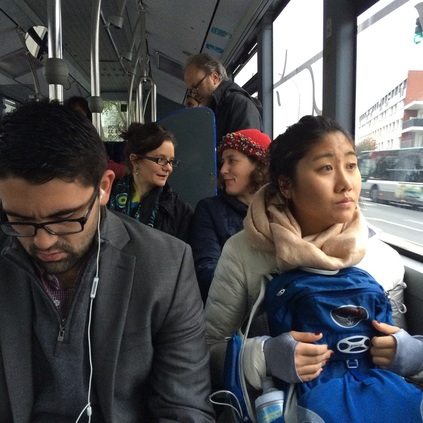|
Written by Liz Wulbrecht  Today was Africa day at the indigenous pavilions. Men and women were passionately sharing their stories about climate change and traditional practices. A large majority of African indigenous people are pastoralist nomads. They roam the land with their cattle, both human and beast feeding off the earth. Climate change has caused the warming of the land and air, reducing precipitation, and thus compromising indigenous and animal ability to live off of their ancestral land. The grass that feeds the cattle no longer grows. And the milk that feeds these people no longer pours so freely as fifty or twenty years ago. The pastoralist way of life is dying because of the warming earth. Men have to live in the cities to find jobs to feed and support their families. A Maasai woman discussed how women are overworked and burdened. Many have to work multiple jobs. A Kichwa women complained that women can no longer gather and consume traditional foods. These indigenous women are hurting. Indigenous men are hurting. A traditional cattle farmer apologized for his status. He said I am a farmer not an intellectual or academic, but I’m here to share my story, and he did. The trees and grass his people knew for generations have died and the cattle along with it. He spoke plainly and clearly. Life as he knew it, has ended. It’s only been two days at the conference, but I’ve heard countless stories of the devastation from climate change. A woman in the crowd asked if actors in the official negotiations knew of these people’s stories. That is why these groups are here, to make their voices heard.
0 Comments
Leave a Reply. |
In the field...Follow our team as we cover international environmental policy making meetings. Project Leaders:
Dr. Kimberly R. Marion Suiseeya, Department of Political Science, Northwestern University Dr. Laura Zanotti, Department of Anthropology, Purdue University Follow us on Twitter
(@Pres2Influence) Archives
December 2019
Categories |
 RSS Feed
RSS Feed
